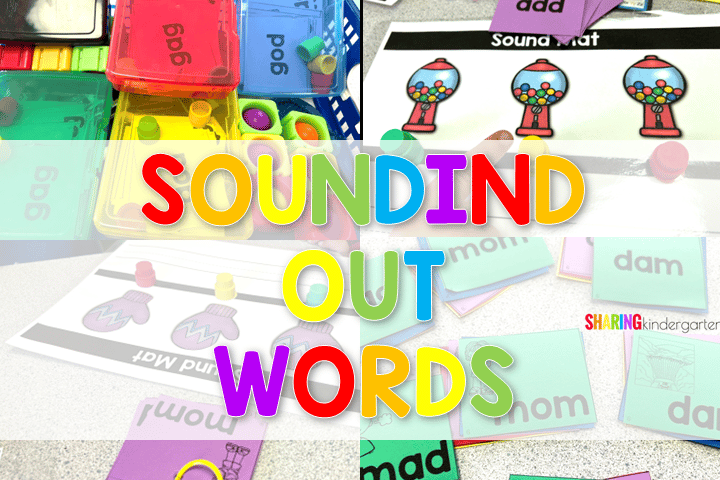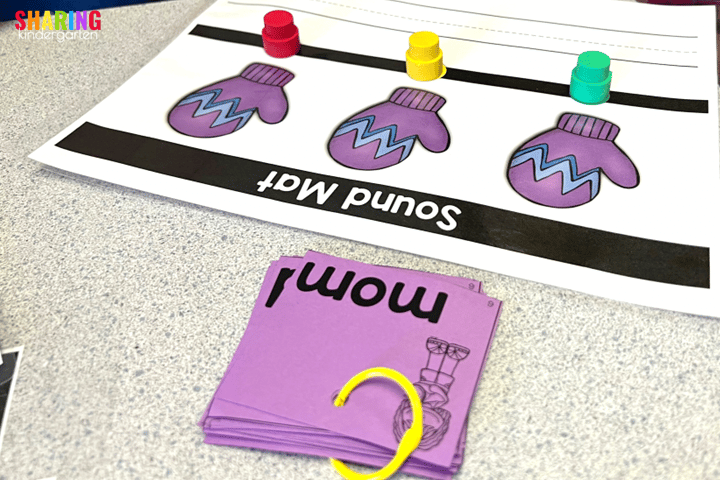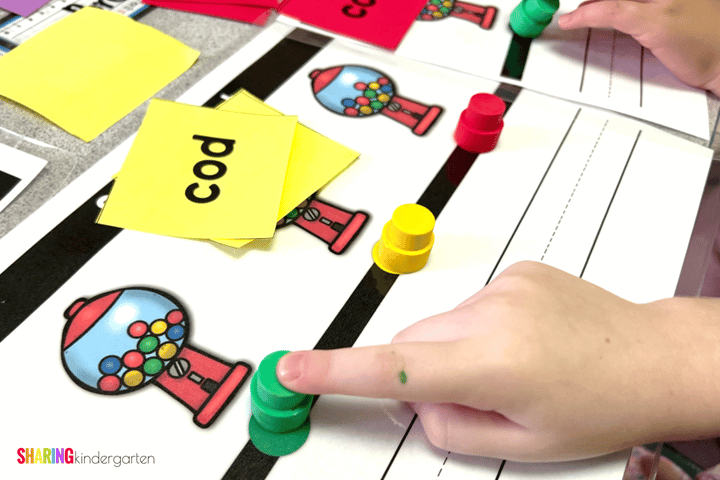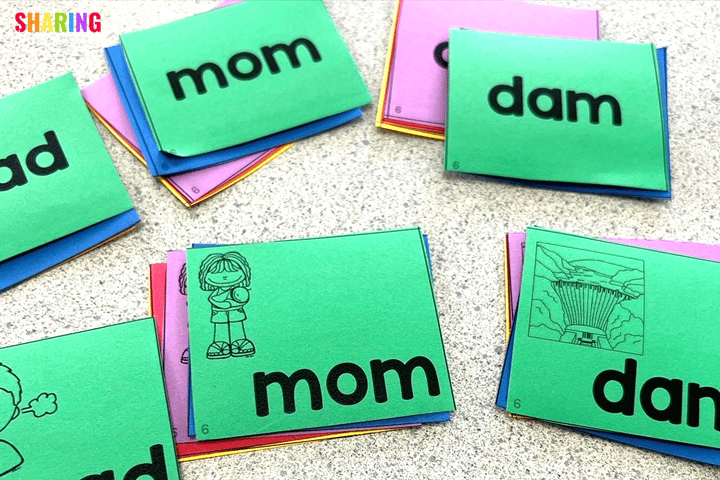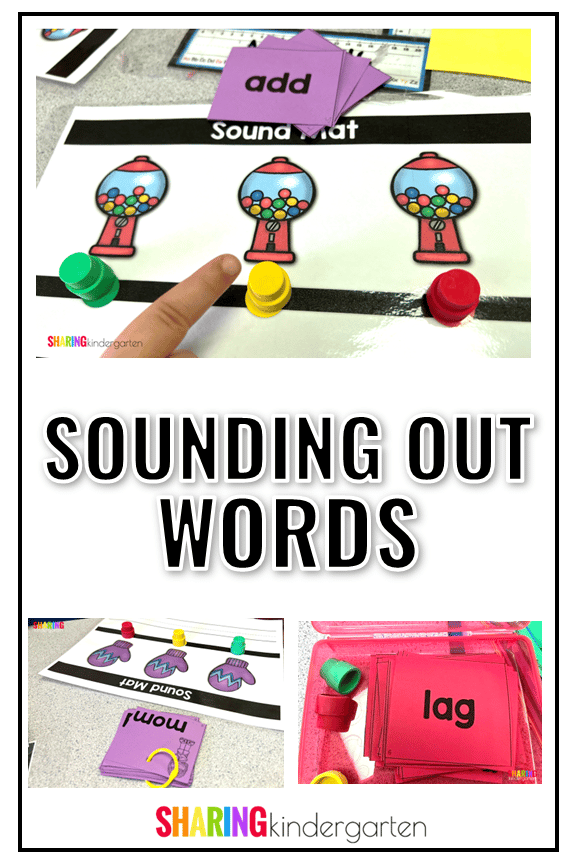One of the goals is for learners to be able to sound out words in Kindergarten. Learning letters and sounds is one thing, but being able to put them together to make words is another. Learning to tap out to write these words is even better. Let’s break down 5 tips for sounding out words in Kindergarten.
Tip 1: Modeling but Don’t Over the Model
Modeling is a huge step when working on sounding out words in Kindergarten. Students often need to be shown how to sound out words. Modeling is critical and modeling a word or two at the beginning of a lesson is great. Be careful when modeling not to over-model. Students should be doing most of the sounding out so they can practice and grow in this skill.
Tip 2: Use Efficient and Effective Routines
When I read experts say this, I kind of roll my eyes. What can efficient or effective sounding out words in Kindergarten look like? Let’s talk about how we can set up our learners for success with ease.
First, gather a list of words your learners can decode. (You can see my phonics outline here or here on TPT.) This means these words are compiled from the list of letters we have covered. We start decoding as soon as we learn enough letters so we can’t decode all words right away. Check out the list of decodable words we can read for our 6th letter Mm. We can work on sounding out all these words this week. I print out the same list 5 times, each in a different color.
Next, we have different abilities word lists. One set has picture clues and the other does not. I cut the words apart and make a pile of the words for each student to use. For this step, I highly recommend having your word labeled so you can take the rings apart at the end of the year and reset them for the next year.
Now, I hole punch these words and place them in a matching color container. This allows a small group to grab their materials easily and efficiently when we need to work on decoding and sounding out words. If you see the image above, you will not see a hole punch or binder ring. When I didn’t use the hole punch and binder ring, the cards got mixed up quickly and the lesson was less effective. But when we used the hole punch and binder ring, as shown above, the lesson went so much smoother.
Tip 3: Blend with Minimal Contrasts
What does this mean? It means that your learners work on blending with the letters and sounds your class is working on that are very similar. So this week, we will blend a lot of words that contain the letter Mm in it. We can blend the words we have previously covered as well, but we can and will focus a lot on the sound we are learning about.
Tip 4: Differentiate to meet learning needs
One great step to differentiate sounding out words in Kindergarten is to provide words with and without images. My lower learners have great success when they could see the image of the word they were sounding out. For example, the image above is of a “dad” so my students can see the image and work on tapping out the sounds to make that word.
Once students find success with sounding out the word when they have the image first, they can work on sounding out words without the image.
Tip 5: Make it Fun
I have found that struggling learners usually have to work the hardest. One way I motivate them to keep working on sounding out words in Kindergarten is the idea of novelty. I use different themed mats week after week. Gg has a gumball mat, Mm has a mitten mat, and so on. The little learners may not feel like they are the same thing over and over again, even though they are.
Instruct with Ease
If you are looking for all the work done for you, check out these Letter Packs! They include sound mats, sounding out cards with differentiation, and so much more. I know these packs will help your little learners work on sounding out words in Kindergarten.
